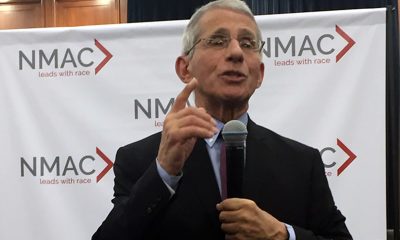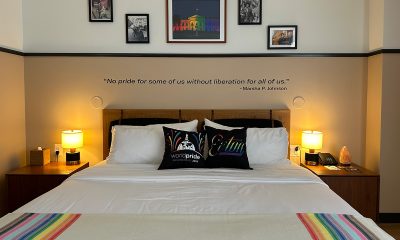News
Gay journalist, political organizer Doug Ireland dies
New Yorker contributed to Gay City News, Village Voice
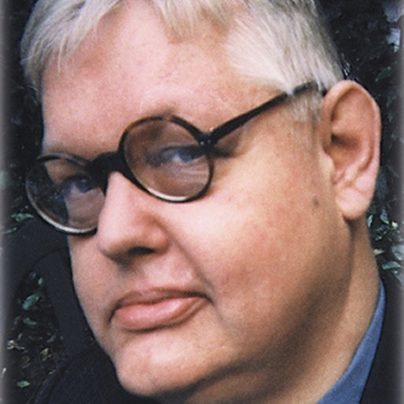
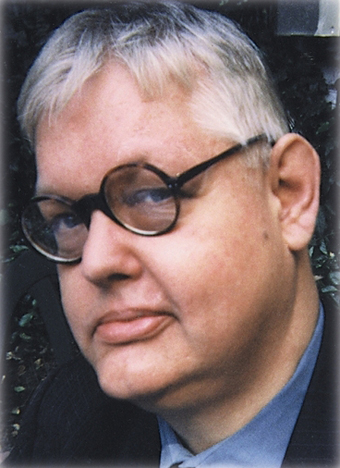
Doug Ireland (Photo courtesy of Gay City News)
Doug Ireland, a longtime LGBT rights advocate who switched roles from an organizer of progressive political causes and election campaigns in the 1960s and 1970s to become an internationally recognized journalist and commentator, died Oct. 26 in his home in New York’s East Village. He was 67.
Since at least the 1980s, Ireland has worked at various times as a columnist for The Village Voice, The New York Observer, New York Magazine, POZ Magazine, the L.A. Weekly, the Paris-based daily newspaper Liberation, and the French political-investigative magazine BAKCHICH, according to biographical information on his Linked-In page.
He served since 2005 as international contributing editor to Gay City News, the New York weekly newspaper for the LGBT community.
Ken Sherrill, professor emeritus in political science at New York’s Hunter College and a friend of Ireland’s since the early 1960s, said Ireland emerged in his early career as an “extraordinary” organizer of political campaigns, both for liberal-left causes and for progressive public officials, such as the late-U.S. Rep. Bella Abzug (D-N.Y).
“He was an excellent campaign organizer,” Sherrill said. “He reinvented himself as an excellent journalist and most important he had a passionate commitment to justice.”
Ireland’s longtime friend Valerie Goodman told Gay City News he had been suffering in recent years from diabetes and the after-effects of two strokes.
“Despite chronic, at times debilitating pain and frequent hospitalizations, Ireland remained a dogged reporter and book critic in recent years, writing articles for nearly every issue of Gay City News,” said Paul Schindler, the Gay City News editor, in an article published after Ireland’s death.
Sherrill and others who knew Ireland said he became involved in the early 1960s with the new left movement initially as a member and later as one of the leaders of Students for a Democratic Society (SDS) beginning at the age of 17.
According to a Wikipedia biography of Ireland, he dropped out of the SDS in 1966 to devote his time and energy to electoral organizing against the Vietnam War, initially with several U.S. labor unions and later on behalf of anti-war candidates running for public office.
Among other things, Ireland joined the staff of the 1968 campaign of then Democratic U.S. Sen. Eugene McCarthy, who challenged President Lyndon Johnson for the Democratic Party nomination on an anti-Vietnam War platform. Although McCarthy lost his bid for the nomination to then Vice President Hubert Humphrey after Johnson withdrew as a candidate, the McCarthy campaign and Ireland’s efforts have been credited with helping open the way for the election of anti-war candidates to Congress.
Two such candidates, Allard Lowenstein of Long Island and Bella Abzug of New York City, won their races for the U.S. House of Representatives with Ireland serving as a lead organizer of their campaigns, Sherrill told the Blade.
“He was an extraordinary organizer,” Sherrill said. “He could bring people together who would ordinarily not talk to each other.”
Sherrill said Ireland succeeded where some left-leaning political advocates failed because he was “capable of supreme pragmatism” to achieve political objectives, even when, at times, he enlisted the help of machine politicians.
New York-based gay freelance travel writer and photographer Michael Luongo praised Ireland’s skills as a reporter as well as a commentator, saying Ireland developed a vast network of sources and contacts in the U.S. and abroad.
“I fully admired his work, always amazed at his network of contacts and how he was able to go deep on issues around the world relating to the LGBT struggle,” Luongo said.
Luongo said that in his conversations with Ireland in recent years, which were mostly by phone, he was moved by Ireland’s enthusiastic willingness to help him in his own work on travel related stories and to explain how he gathered news for his own reporting.
“My phone is always on,” he quoted Ireland as telling him. “I never sleep.”
Ireland went on to explain, said Luongo, “There were always people he knew in trouble who might need his help at any time among the activists and contacts scattered around the globe and throughout the time zones. That was what struck me most in my conversations with him,” Luongo said.
“You would simply read his stuff and wonder, how did he get that? And then I knew; he was on the phone, on email, constantly trying to find people to interview.”
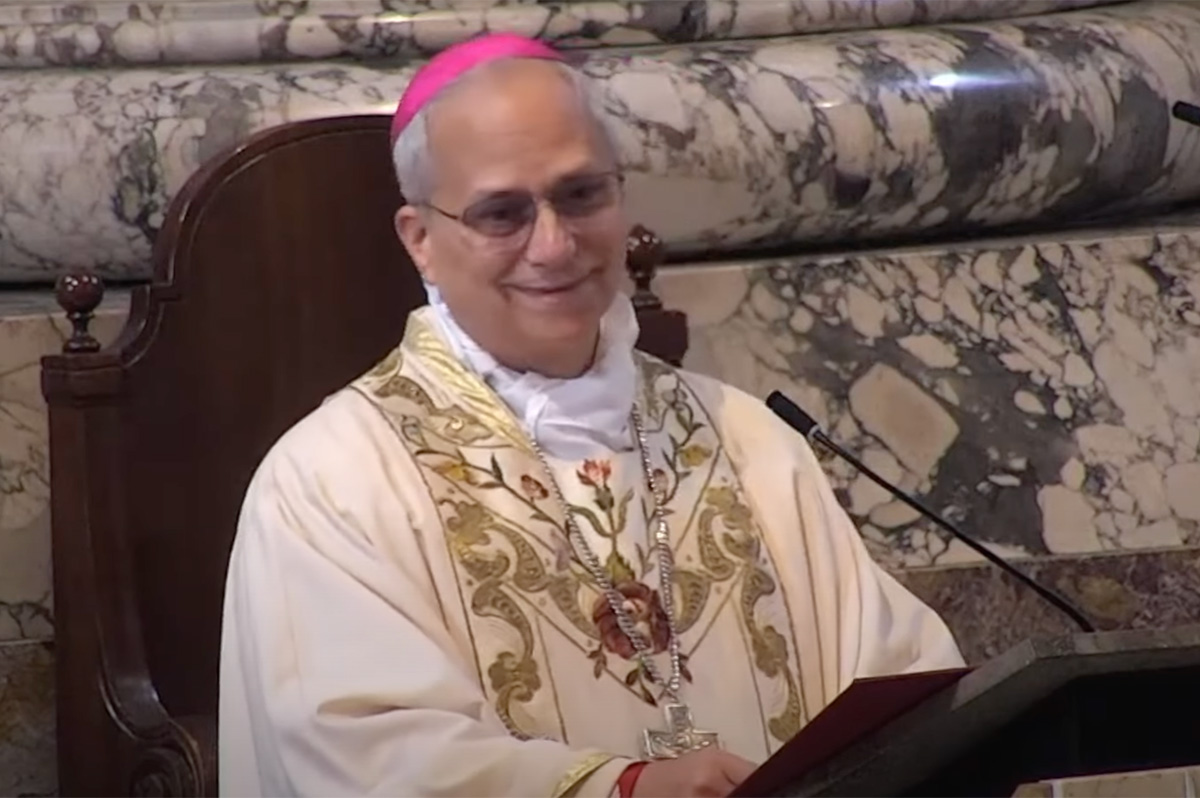
The College of Cardinals on Thursday elected Cardinal Robert Prevost from Chicago as the Catholic Church’s next pope.
Leo XIV’s election took place less than three weeks after Pope Francis died at Casa Santa Marta, his official residence at the Vatican. The conclave to choose his successor began on Wednesday.
Leo XIV, who was born in Chicago in 1955, is the first American pope.
Leo XIV was bishop of the Diocese of Chiclayo in Peru from 2015-2023. Francis made him a cardinal in 2023
“We salute the appointment of the new Pope Leo XVI,” said the U.S. Embassy in Peru on X.
“A celebration for the world’s Catholics, and a joy especially shared between the American people and the Peruvian people. From Chicago to Chiclayo.”
U.S. Rep. Robert Garcia (D-Calif.), a gay man of Peruvian descent, also congratulated Leo XIV.
“As a Catholic and Peruvian American, I wish Pope Leo XIV strength as he steps into his role as a global and spiritual leader,” said the California Democrat on X. “He has demonstrated that he believes in justice for the poor and immigrants. May his leadership reflect these ideals as he spreads peace across the world.”
As a Catholic and Peruvian American, I wish Pope Leo XIV strength as he steps into his role as a global and spiritual leader. He has demonstrated that he believes in justice for the poor and immigrants. May his leadership reflect these ideals as he spreads peace across the world.
— Congressman Robert Garcia (@RepRobertGarcia) May 8, 2025
Francis died on April 21 at Casa Santa Marta, his official residence at the Vatican. The conclave to choose the Argentine pontiff’s successor began on Wednesday.
The Vatican’s tone on LGBTQ and intersex issues softened under Francis’s papacy, even though church teachings on homosexuality did not change.
Francis, among other things, described laws that criminalize consensual same-sex sexual relations as “unjust” and supported civil unions for gays and lesbians. Transgender people were among those who greeted Francis’s coffin at Rome’s St. Mary Major Basilica before his burial on April 26.
The New York Times reported Leo XIV in a 2012 speech to bishops specifically cited “homosexual lifestyle” and “alternative families comprised of same-sex partners and their adopted children” when he said Western media and popular culture has promoted “sympathy for beliefs and practices that are at odds with the gospel”
Marianne Duddy-Burke, executive director of DignityUSA, a group that represents LGBTQ Catholics, traveled to Rome for the conclave.
She told the Washington Blade in a text message from St. Peter’s Square shortly after Leo XIV’s election that she “heard him speak” last October and “found him thoughtful and gently challenging.”
“[He] hasn’t said a lot since early 2010s. [I] hope he has evolved,” said Duddy-Burke. “His commitment to synodality is a hopeful sign.”
Her group later issued a statement.
“This election appears to signal a willingness to continue building on Pope Francis’s commitment to synodality and social justice,” said DignityUSA. “We pray that the needs of those whom our church has historically marginalized, including LGBTQ+ people and their families, will continue to be heard and addressed by the Vatican and other church leaders.”
Francis DeBernardo, executive director of New Ways Ministry, a Maryland-based LGBTQ Catholic organization, in a statement said there is “a special pride in having the first pope from the United States, his longtime ministry in Latin America most likely had an equally formative influence on his spirituality and approach to church issues.” DeBernardo, however, criticized Leo XIV’s 2012 comments.
“We pray that in the 13 years that have passed, 12 of which were under the papacy of Pope Francis, that his heart and mind have developed more progressively on LGBTQ+ issues, and we will take a wait-and-see attitude to see if that has happened,” he said.
“We pray that as our church transitions from 12 years of an historic papacy, Pope Leo XIV will continue the welcome and outreach to LGBTQ+ people which Pope Francis inaugurated,” added DeBernardo. “The healing that began with ‘Who am I to judge?’ needs to continue and grow to ‘Who am I, if not a friend to LGBTQ+ people?'”
DignityUSA agreed.
“We express concern with the former Cardinal’s statements — as reported in the New York Times — in a 2012 address to bishops, where he stated that Western news media and popular culture fostered ‘sympathy for beliefs and practices that are at odds with the gospel’ including the ‘homosexual lifestyle’ and ‘alternative families comprised of same-sex partners and their adopted children.'” We note that this statement was made during the papacy of Benedict XVI, when doctrinal adherence appeared to be expected,” said the organization in its statement. “In addition, the voices of LGBTQ people were rarely heard at that level of church leadership. We pray that Pope Leo XIV will demonstrate a willingness to listen and grow as he begins his new role as the leader of the global church.”
Vanuatu
Vanuatu lawmakers consider constitutional amendment to recognize two genders
Country decriminalized consensual same-sex sexual relations in 2007
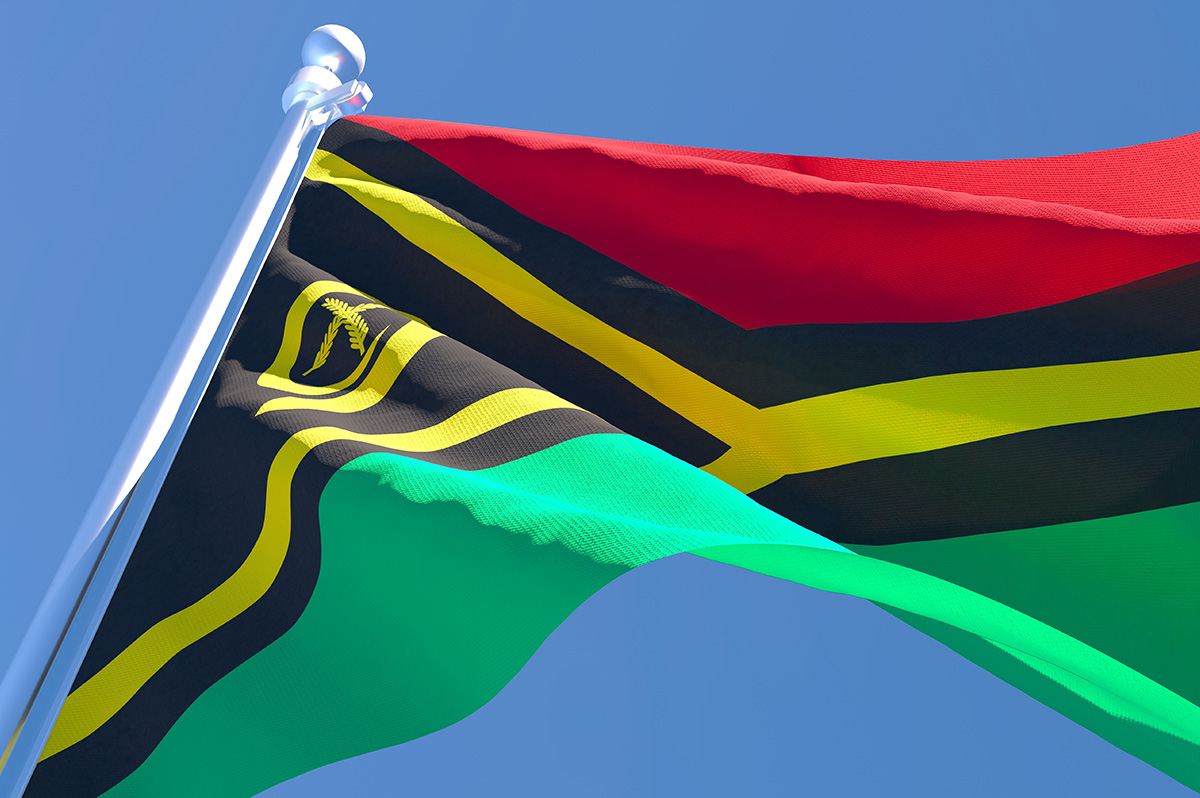
Lawmakers in Vanuatu are considering an amendment to the country’s constitution that would recognize only two sexes: Male and female.
The Vanuatu Daily Post in an April 23 article quoted Vanuatu Christian Council Chair Collin Keleb, a pastor with the Presbyterian Church of Vanuatu, said the country “cannot allow someone from outside to influence or empower them (the LGBTQ community), which will cause them to go astray instead of maintaining and uniting ourselves as children of God.”
The country’s Council of Ministers has approved the proposed amendment. The Vanuatu Daily Post notes the government has said the measure would “align the country’s laws with the preambles of ‘Melanesian values and Christian principles’ upon which Vanuatu was founded.”
Vanuatu is an island country in the South Pacific that is located roughly 1,100 miles northeast of Australia’s Queensland state.
Consensual same-sex sexual relations have been decriminalized in Vanuatu since 2007.
It remains unclear when the proposed amendment will receive final approval.
Virginia
Va. officials investigate Loudoun County schools over trans student in locker room
Boys’ complaints prompted LCPS to investigate them for Title IX violations

Governor Glenn Youngkin and Attorney General Jason Miyares on Tuesday announced they have launched an investigation into how Loudoun County Public Schools has handled the case of three male high school students who complained about a transgender student in a boys’ locker room.
One of the boys’ fathers told WJLA that Loudoun County public schools launched an investigation into whether his son and the two other boys sexually harassed the student after they said they felt uncomfortable with her in the locker room at Stone Bridge High School in Ashburn.
“He was questioning why there was a female in the males’ locker room,” the father told WJLA. “And other boys were uncomfortable [with a female in the boys’ locker room].”
“There were other boys asking the same question,” he added. “They [LCPS] created a very uncomfortable situation. They’re young, they’re 15 years old. They’re expressing their opinions, and now they’re being targeted for expressing those opinions.”
WJLA notes Loudoun County public schools allows students to use bathrooms and locker rooms based on their gender identity. The father who spoke with WJLA said Loudoun County public schools should reverse the policy and dismiss the Title IX complaint it has brought against his son and the two other boys.
The Richmond-based Founding Freedoms Law Center is representing the boys and their families.
“It’s deeply concerning to read reports of yet another incident in Loudoun County schools where members of the opposite sex are violating the privacy of students in locker rooms,” said Youngkin in a statement that announced the investigation. “Even more alarming, the victims of this violation are the ones being investigated — this is beyond belief. I’ve asked Attorney General Miyares to investigate this situation immediately so that every student’s privacy, dignity, and safety are upheld.”
“Students who express legitimate concerns about sharing locker rooms with individuals of the opposite biological sex should not be subjected to harassment or discrimination claims,” added the Republican.
The Virginia Department of Education in 2023 announced the new guidelines for trans and nonbinary students for which Youngkin asked. Equality Virginia and other advocacy groups claim they, among other things, forcibly out trans and nonbinary students.
The U.S. Department of Education’s Office of Civil Rights in February launched an investigation into whether Loudoun County and four other Northern Virginia school districts’ policies in support of trans and nonbinary students violate Title IX and President Donald Trump’s executive order that prohibits federally funded educational institutions from promoting “gender ideology.”
-
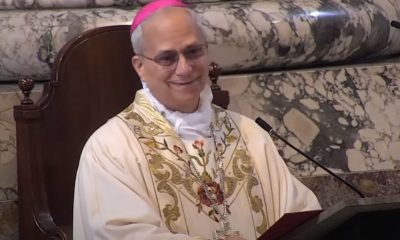
 The Vatican16 hours ago
The Vatican16 hours agoAmerican cardinal chosen as next pope
-

 a&e features22 hours ago
a&e features22 hours agoYour guide to the many Pride celebrations in D.C. region
-

 U.S. Supreme Court3 days ago
U.S. Supreme Court3 days agoSupreme Court allows Trump admin to enforce trans military ban
-
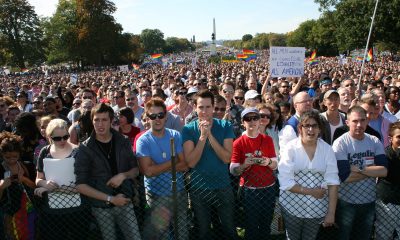
 District of Columbia2 days ago
District of Columbia2 days agoWorldPride permits for National Mall have yet to be approved

